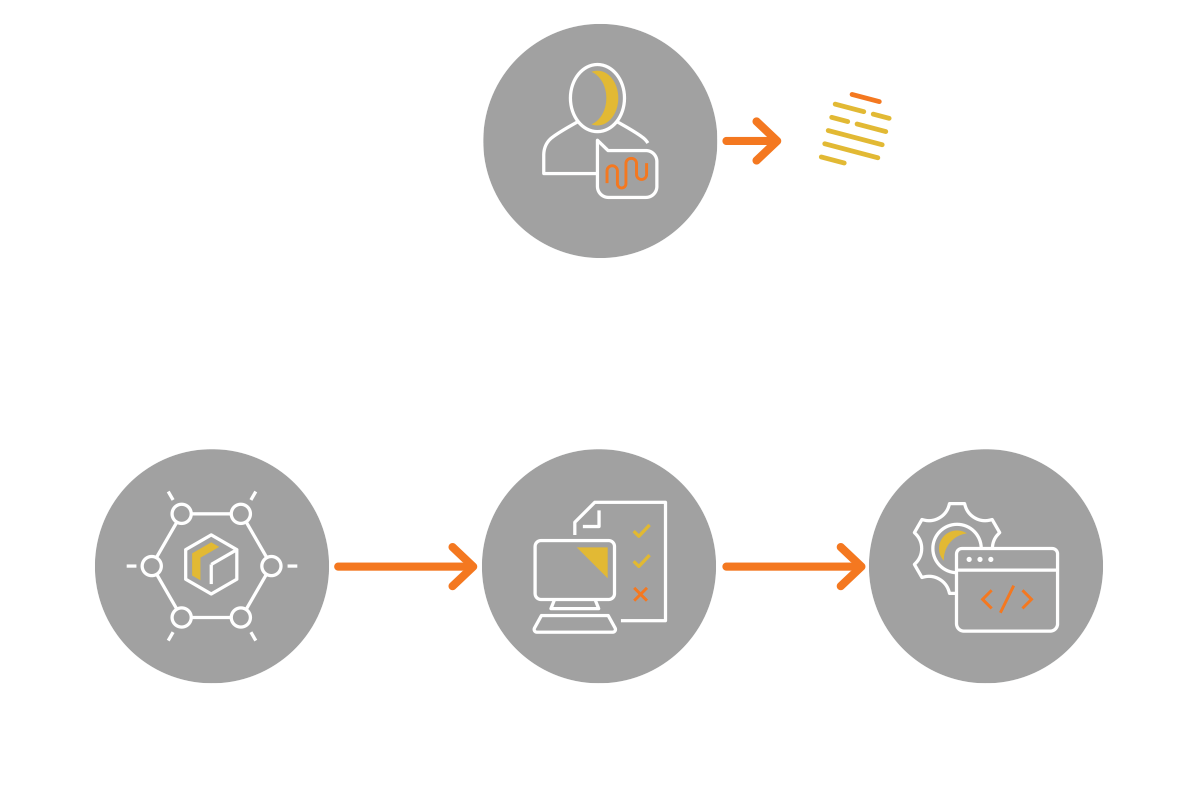Analytics Project Turn Your Data into Decisions
A flexible two-phase framework for every analytics ambition
Building enterprise data warehouses, interactive BI layers, advanced machine-learning environments, or other custom analytics platforms demands specialists, data engineers, modelers, and BI developers that many organisations lack. Nova DBA’s Analytics Project delivers that firepower through a two-phase framework that flexes to any insight goal, turning conceptual roadmaps into production-ready solutions without disruption.
After Discovery & Planning, our team constructs pipelines, models, dashboards, or AI sandboxes, then wraps with a complete hand-off and enablement workshops. Your analysts and engineers inherit well-documented assets and the skills to evolve them independently, while Nova DBA stays on standby for future enhancements, expansions, or entirely new use cases.

How Does Analytics Project Work
Phase 1
1 Discovery & Planning
Designing an enterprise warehouse, enabling self-service BI, or launching an ML sandbox all demand different data rules and artefacts, so our discovery flexes to your analytics ambition. Data engineers audit sources, quality, and lineage; stakeholders prioritise use cases and KPIs; security leads define access controls; architects size tooling for scale and performance. These insights crystallise into a Project Plan, your scorecard for Phase 2: Execution & Delivery, so every pipeline, model, and dashboard traces directly to the business value set on day one and grows with your analytics ambition.
Phase 2
2 The Data Integration Plan
Translating the data-strategy into action, we design end-to-end pipelines, modelling layers, governance rules, and visual-analytics standards that match your chosen cloud or on-prem stack. ELT workflows are sketched in code stubs, semantic models and KPI definitions are locked, and role-based access is wired to security policies. The deliverable is a solution kit architecture diagrams, data-catalogue mappings, sprint backlog, and DevOps templates, providing an agreed, testable design that feeds directly into Execution & Delivery without rework.
3 Analytics Environment & the Minimum Viable Report (MVR)
Data pipelines go live incrementally, populating the warehouse or lakehouse while integrity checks trace every record back to source. Dashboards and models are promoted through staging to production, where user-acceptance sessions confirm KPIs, refresh cadence, and role-based access controls. Load-test results, lineage diagrams, and security scans are bundled into a launch dossier, assuring stakeholders that insight is both trusted and scalable from the very first query.
4 Iterative Development
Dashboards evolve, KPIs shift, and fresh data sources surface but you choose when to call us in. With BI Specialist On-Demand, the experts who built your analytics layer can return for a quick DAX tune-up, a new KPI pack, or an advanced-model prototype, on a schedule and budget that you control.
Analytics Project Use-Cases
Data Warehouse and Data Lake
When you need to consolidate scattered data sources, Nova DBA designs and builds modern data warehouses and data lakes so you can centralize information, improve performance, and enable reliable analytics.
Interactive Analytics
When teams need clear, trusted metrics, Nova DBA delivers interactive dashboards and reports so you can visualize performance, track KPIs, and make data-driven decisions with confidence.
Advanced Analytics Enablement
When you’re ready to leverage AI and data science, Nova DBA implements analytical frameworks so you can predict trends and drive growth.
Advantages of the Analytics Project solution
Avoid Costly Trial-and-Error Cycles:
Hard-won BI insight, paired with a proven methodology of iterative design and quality checkpoints, avoids the usual snags, mis-modelled facts, slow refresh cycles, hidden licence traps. Guard-rails keep data models, pipelines, and dashboards on course, delivering reliable insight without expensive do-overs.
Ongoing Strategic Partnership:
Once dashboards are live, BI Specialist On-Demand provides flexible access to analysts who refine KPIs, onboard new data sources, and prototype advanced models. Your insights platform grows with the business while you decide when extra help is needed.
Access to a Multidisciplinary Team:
Whenever the project demands specialist know-how, a full roster of professionals is available, database architects and senior DBAs, cloud and infrastructure engineers, system administrators, data engineers, and BI developers. Expertise plugs in exactly when needed, eliminating recruitment delays, sustaining project momentum, and enforcing best-practice quality at every layer.
We take care of your databases so you can focus on your core business.
Learn more about Analytics Project
Contact usFAQ
What tools do you support?
What data sources can you ingest?
Can you integrate with our existing analytics tools and workflows?
What project methodology do you follow?
How do you deliver early value and measure ROI?
Is user training included?
How is the project priced?
What post-launch support options are available?
